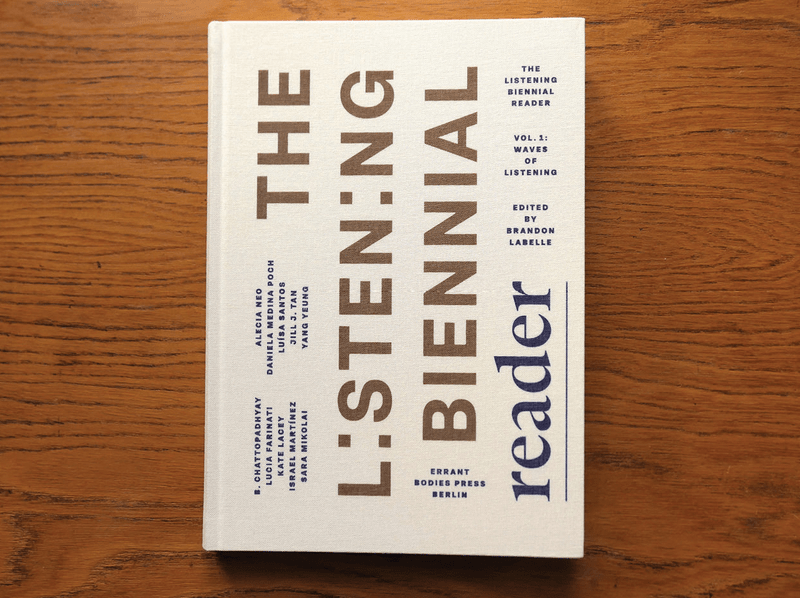Within today’s intensely polarized environment, in which social and political debate often tends toward conflict or impasse, might listening enact an intervention? While focus is mostly placed on making statements, capturing history, and the importance of speaking out, listening is radically key to facilitating dialogue, understanding, and social transformation. To listen is to extend the boundaries of the familiar, the recognized, and the known. In addition, listening affords more egalitarian and ecologically-attuned relations, staggering exclusionary systems and human exceptionalism by way of empathic, attentional, and more-than-human orientations: to hear beyond the often fixed schema of self and other, us and them. Listening is an embodied power, it may open and hold, it may support and heal, and it may afford escape as well as compassionate action.
The Listening Biennial Reader draws attention to listening as a relational capacity, a philosophical and ecological proposition, a creative practice, and research method. This includes contributions by curators and artists from the first edition of The Listening Biennial, presented in 2021, along with a number of key scholars who offer critical reflections on cultures of listening. Listening emerges as a creative and critical force, or wave of attention, that contributes to maintaining the diversity of our social, creaturely adventure.
Including contributions from Budhaditya Chattopadhyay, Lucia Farinati, Brandon LaBelle, Kate Lacey, Israel Martínez, Sara Mikolai, Alecia Neo and Jill T. Tan, Daniela Medina Poch, Luísa Santos, and Yang Yeung.
Read more:
www.errantbodies.org
www.listeningbiennial.net


